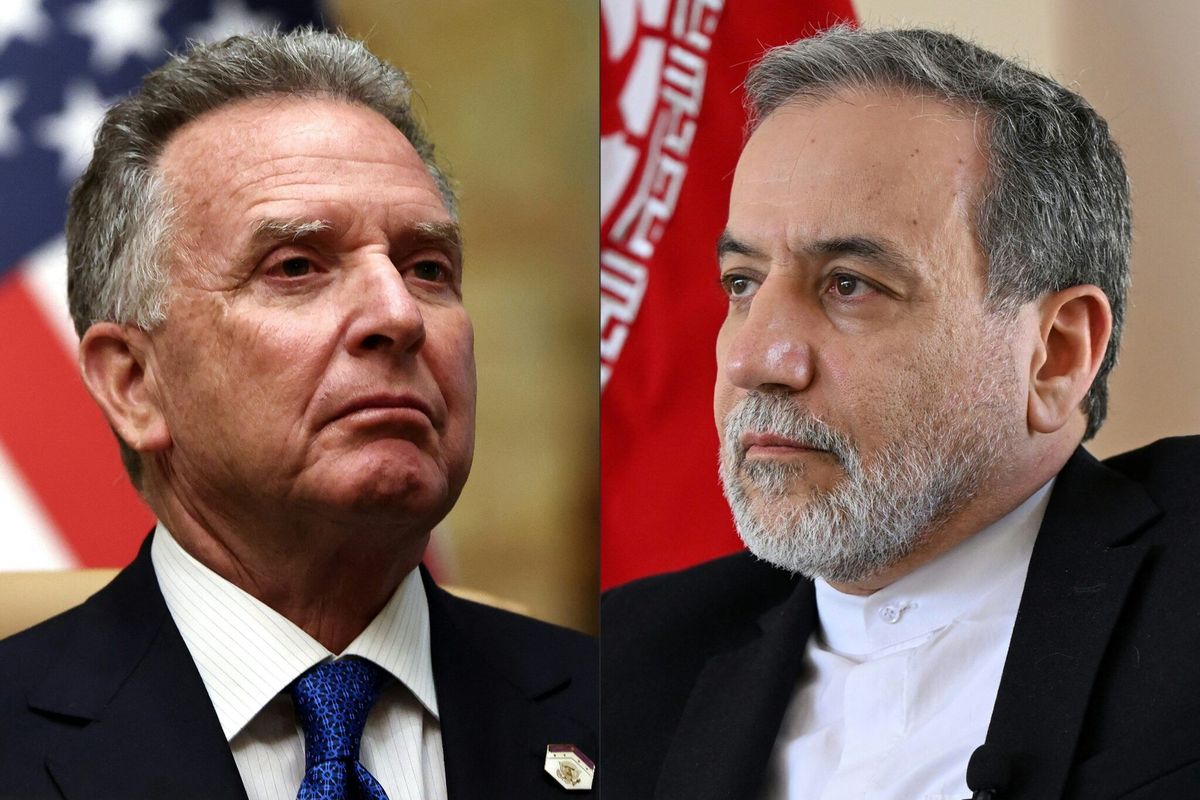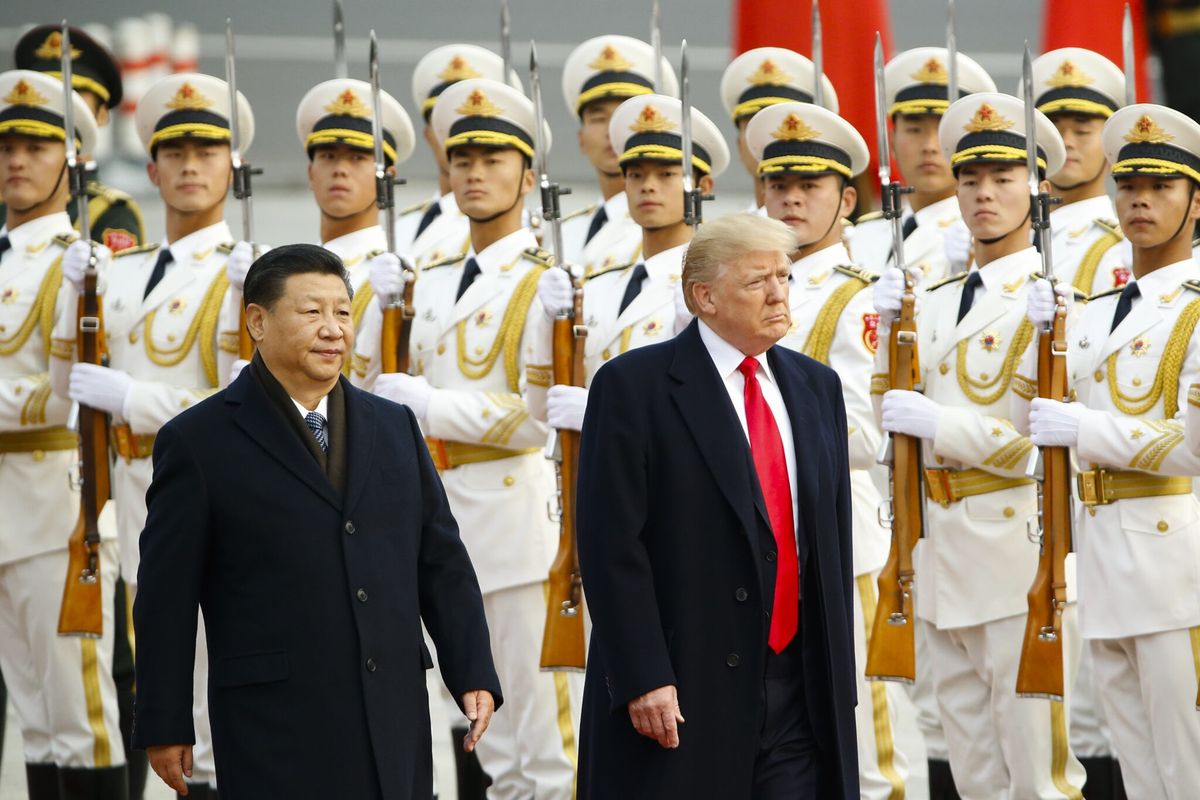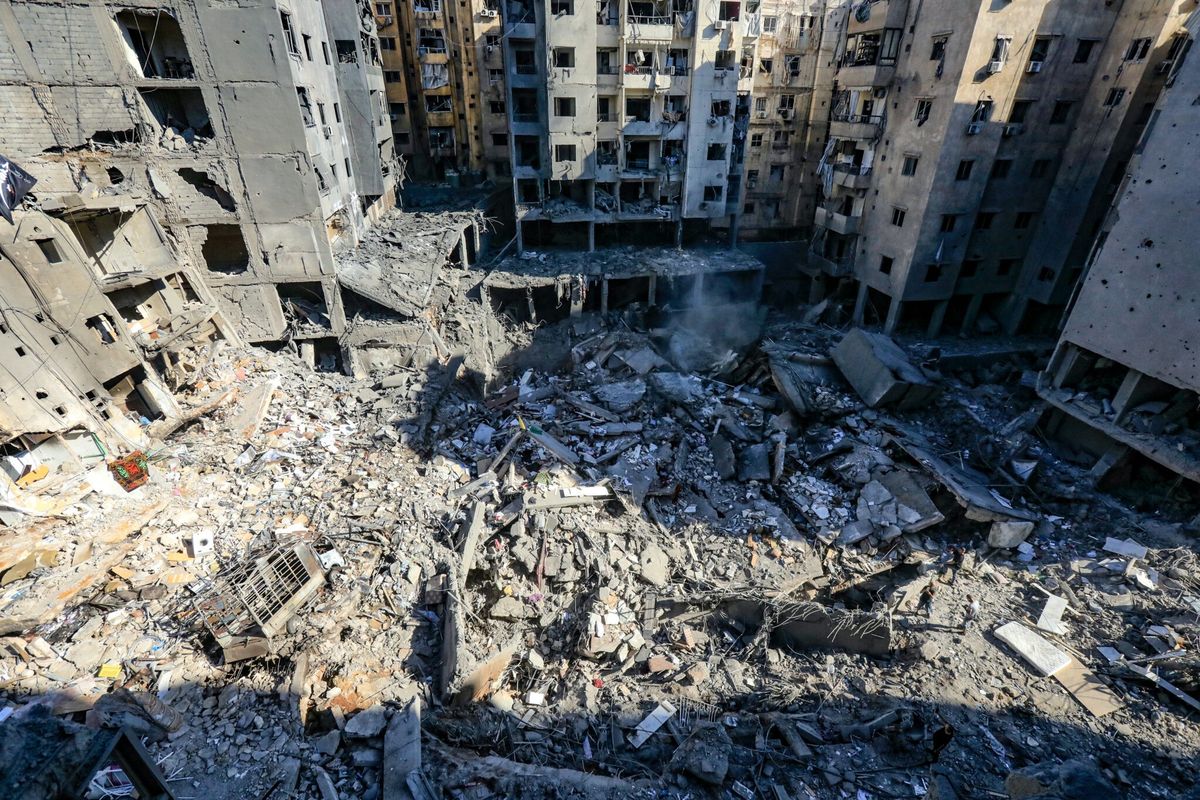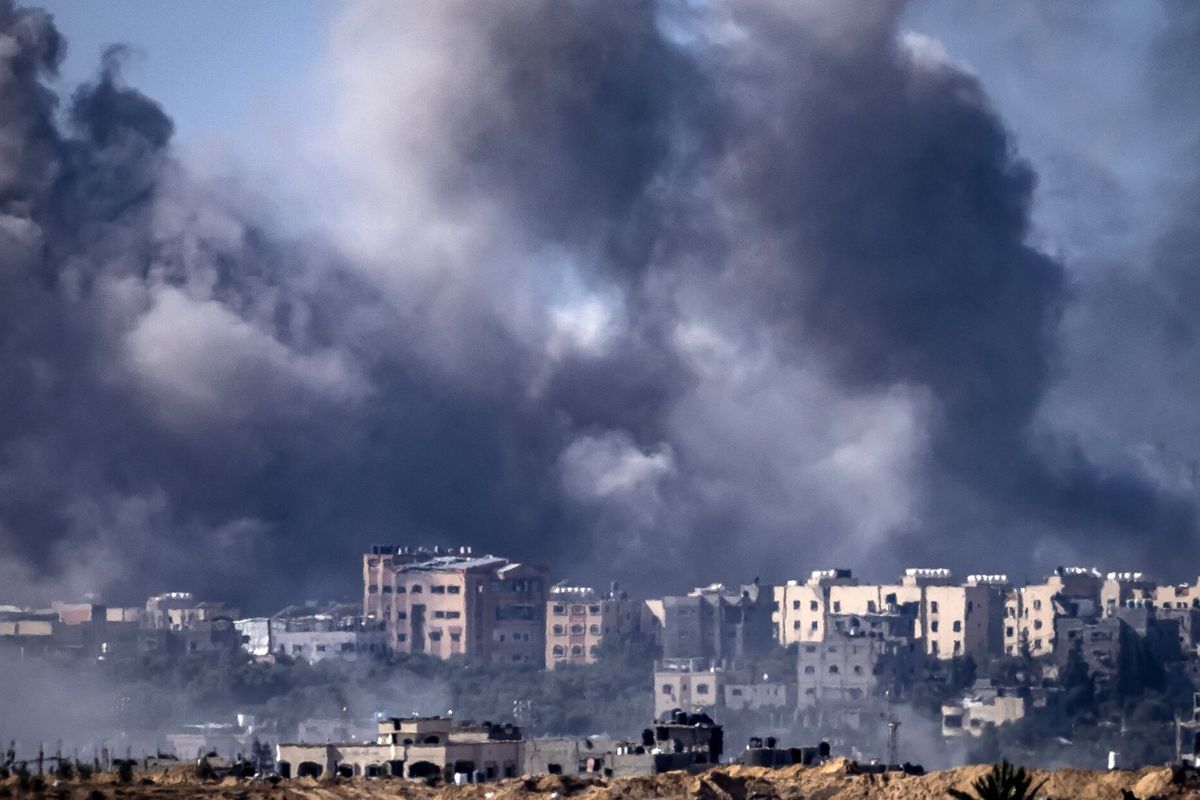OPINION — The resignation on Monday of Major General Aharon Haliva, head of the Military Intelligence Directorate of the Israeli Defense Forces (IDF), marked the first announced departure among Israel’s senior leadership over the failure to anticipate and thwart Hamas’ brutal attack on 7 October. The timing of his resignation – in the midst of an active war - was both unexpected and curious, raising questions as to whether and when others may follow suit.
Haliva, having acknowledged his responsibility for the intelligence failure just 10 days after 7 October, had telegraphed his intent to resign but pledged to stay on until the war with Hamas had concluded. That war shows little sign of abating, with the tempo of crossfire attacks with Lebanon increasing, violence in the West Bank raging, a renewed offensive in southern Gaza in the offing, and a dangerous escalation with Iran barely averted last week.
With Haliva’s abrupt about-face, he is opening the door for others to follow and perhaps offering a gentle push, whether intended or not. Axios reports that Haliva’s departure will spur other resignations in the IDF and Shin Bet—the internal security service responsible for intelligence in Gaza—as well as political officials. The commander of the IDF Central Command, in charge of the West Bank, also notified IDF leadership on Monday, perhaps unrelatedly, that he intends to retire at the end of his current term in August. But all eyes are on Prime Minister Benjamin Netanyahu, the only senior leader who has refused to take any responsibility for failures leading up to 7 October and instead has tried to shift sole blame to his military and intelligence leaders.
Is that fair? Intelligence organizations are first and foremost responsible for warning of threats to national security. Haliva quickly acknowledged this on October 17: “We failed in our most important mission.” And he expressed in his letter of resignation what citizens in a democracy can and should expect of their leaders: “Along with authority comes heavy responsibility.”
It’s not just for the President anymore. Cipher Brief Subscriber+Members have access to their own Open Source Daily Brief, keeping you up to date on global events impacting national security. It pays to be a Subscriber+Member.
In my own examination of the intelligence failure, it is clear that Israeli intelligence analysts, as well as Israel’s military and political hierarchy, failed to understand the enemy. Their analysis over decades rested primarily on two flawed assumptions: Hamas’ leaders weren’t as interested in terrorism as they were in staying in power; and Hamas lacked the capabilities to seriously threaten Israel. So anchored were the Israelis in this assumption, that most could not comprehend what was happening in front of their eyes; it was literally unimaginable. Ironically, looking at the scholarly work that others have conducted on the failure to anticipate the Arab attack in 1973—the catalyst for the Yom Kippur War—the criticisms are eerily similar.
Haliva’s resignation is all the more important because not only did his organization in aggregate fail to warn of the Hamas attack; leaders in his organization actually dismissed the warnings of subordinates. Clarity around what was known and what was done by the analysts and their managers remains murky and almost certainly incomplete. But various news reports have indicated that analysts provided warning three months before the attack. The Times of Israel reports that Haliva ordered that intelligence collection be stepped up, and that it was. But other reports suggest that warnings issued by a veteran analyst and by the junior enlisted cadre known as “spotters” who were assigned to observe Hamas actions were dismissed as “alarmist,” and the idea that Hamas would attack as “imaginary.”
With many global intelligence failures, however, there is a broader context that suggests responsibility extends beyond the intelligence agencies. In the case of the Hamas attack, this broader context appears rather consequential.
One cannot ignore the fact that Israel’s political leadership set the priorities and created the environment that allowed Hamas to thrive. Netanyahu’s governments over a decade pursued a policy that allowed and encouraged payments to Hamas totaling billions of dollars, reportedly believing the revenue stream would maintain the peace and lessen pressure for a two-state solution. Perhaps just as importantly, government priorities flow down, sometimes subtly and sometimes abruptly shifting intelligence services’ attention and resources. In this case, it meant resources, intelligence collection, and personnel were shifted away from monitoring Hamas to other threats that appeared more serious or to political priorities, like protecting settlers in the West Bank.
The IDF, without waiting for instruction from above, has begun an internal inquiry about its own failings, including by the Military Intelligence Directorate, which is due to be presented to the Chief of the General Staff by the beginning of June. This will provide some answers and allow the IDF to begin to address systemic issues. But we will have to wait some time before a formal, national-level inquiry is launched and completed, as Haliva called for in his letter of resignation. Netanyahu has promised such an investigation, just as there was after the Yom Kippur War intelligence failure in 1973, but not until the end of the war.
I have no doubt that when an inquiry is done, the causes will span many years and responsibility for the failure will be widely assigned, from the intelligence and security services to government leaders and policies. But culpability, revenge, and even resignations are not the point of such inquires nor the solution to the underlying problems. It is the lessons learned and, most importantly, efforts to address what I worry are deep cultural and bureaucratic shortcomings that matter most, lest we repeat another round of historic tragedy.
The Cipher Brief is committed to publishing a range of perspectives on national security issues submitted by deeply experienced national security professionals. Opinions expressed are those of the author and do not represent the views or opinions of The Cipher Brief.
Have a perspective to share based on your experience in the national security field? Send it to Editor@thecipherbrief.com for publication consideration.
Read more expert-driven national security insights, perspective and analysis in The Cipher Brief.















